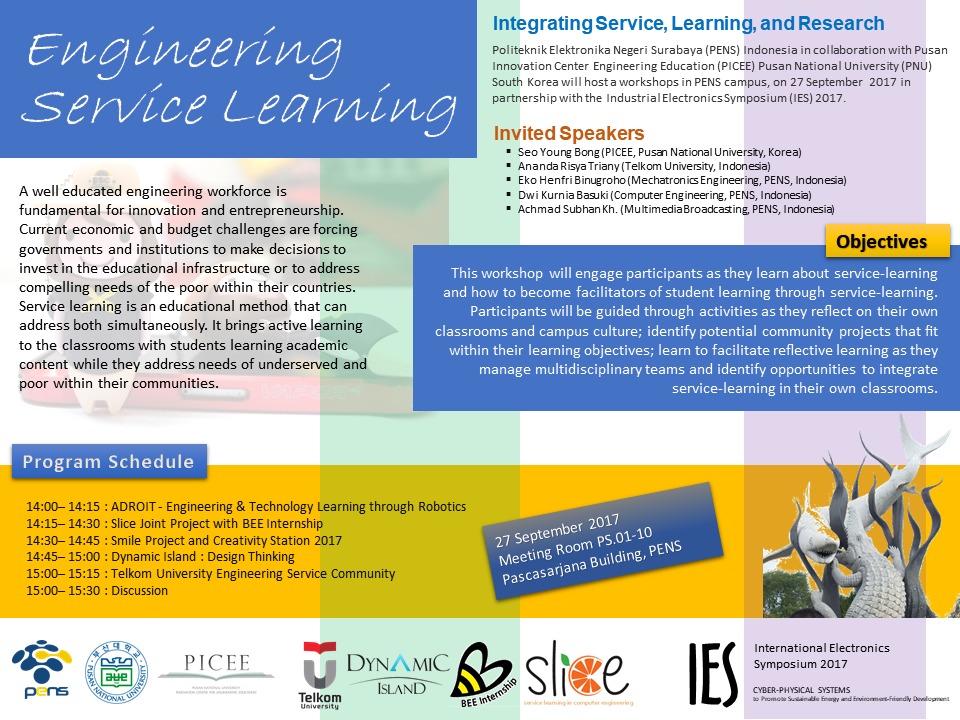Engineering Service Learning and the next engineering education: “Integrating service, learning, and research”
Innovative Education Engineering
The EEPIS Robotic Research Center (ER2C) Politeknik Elektronika Negeri Surabaya (PENS) Indonesia in collaboration with Pusan Innovation Center Engineering Education (PICEE) Pusan National University (PNU) South Korea will host a workshops in Surabaya – East Java, on September 26-27, 2017 in partnership with the Industrial Electronics Symposium (IES) 2017. This workshop invited the participants from several universities in Indonesia, Korea, and Malaysia and addressed three key topics in engineering education research.

Introduction
According to the World Bank Institute, a well prepared human capital in science and technology is one of the four key pillars that support knowledge based economies. A well educated engineering workforce is fundamental for innovation and entrepreneurship.
Current economic and budget challenges are forcing governments and institutions to make decisions to invest in the educational infrastructure or to address compelling needs of the poor within their countries. Service learning is an educational method that can address both simultaneously. It brings active learning to the classrooms with students learning academic content while they address needs of underserved and poor within their communities. Service-learning is a form of experiential learning that shares attributes with problem-based learning and actively engages students in applying what they learn in class to meet real needs of people. Service-learning has been shown to increase classroom learning and develop the broad set of professional skills needed of tomorrow’s leaders and has the additional benefit of helping to address human needs to improve lives of the poor and underserved.
Format
This workshop will actively engage participants as they learn about service-learning and how to become facilitators of student learning through service-learning. Participants will be guided through activities as they reflect on their own classrooms and campus culture; identify potential community projects that fit within their learning objectives; learn to facilitate reflective learning as they manage multidisciplinary teams and identify opportunities to integrate service-learning in their own classrooms. Participants will leave with a plan to implement in their own institutions.
Motivation & Objective
Due to advances in science and technology rapidly, the next engineering education faces a challenge to build the educational process that can produce creative engineers with the ability to innovate with technology today and in the future. engineering service learning as problem-based learning model that can be used as a way to educate students learn to be creative and innovative in solving real problems. It brings active learning to the classrooms with students learning academic content while they address needs of underserved and poor within their communities. Service-learning is a form of experiential learning that shares attributes with problem-based learning and actively engages students in applying what they learn in class to meet real needs of people. Service-learning has been shown to increase classroom learning and develop the broad set of professional skills needed of tomorrow’s leaders and has the additional benefit of helping to address human needs to improve lives of the poor and underserved.
This workshop bring together researcher and/or engineering educators in Indonesia and Southeast Asia addressed three key topics in engineering education research, it also established a platform for the participating institutions’ long-term collaboration and continuous promotion and implementation of engineering education research/ innovation in Indonesia or even Asia.



